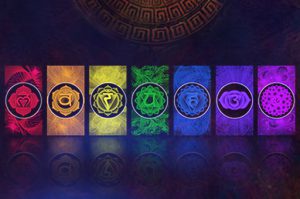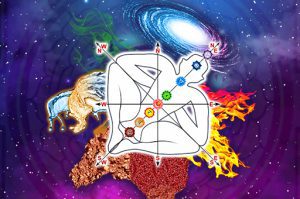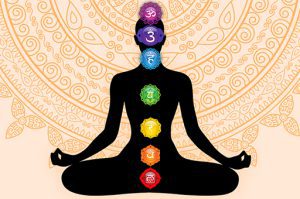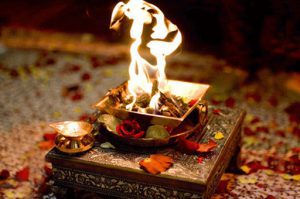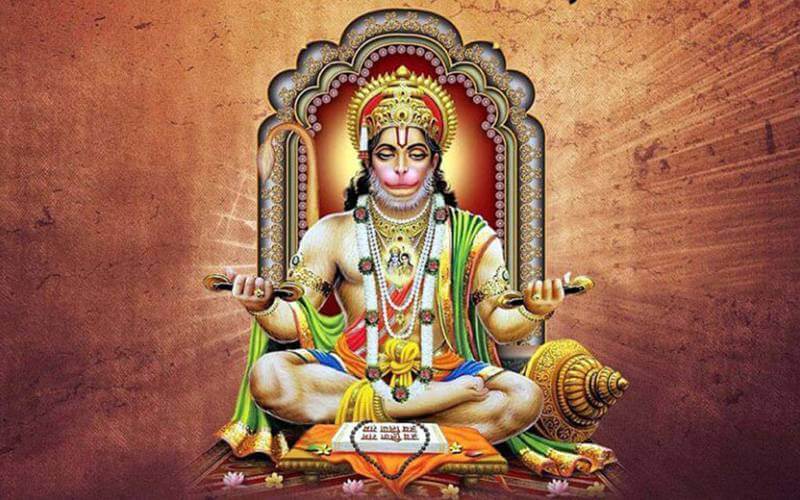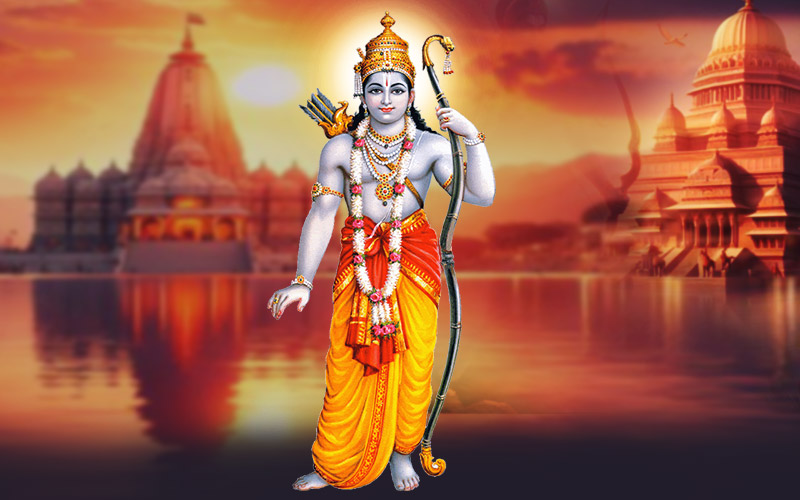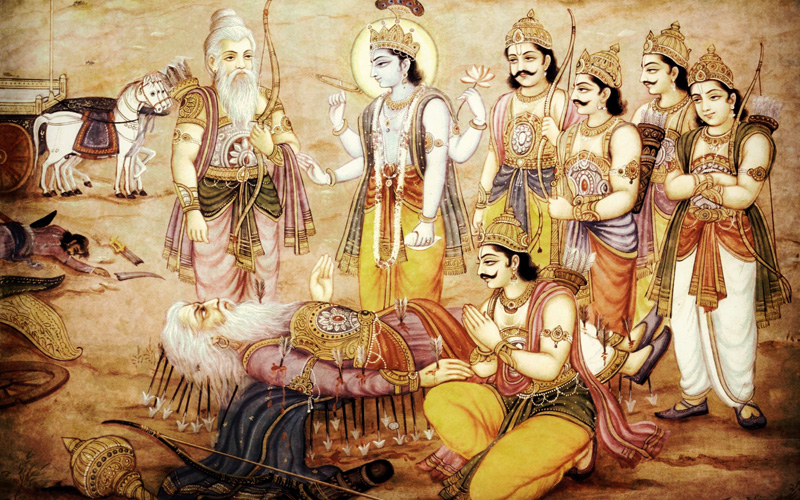
Shantanu was the grandfather of the Pandavas and Kauravas. At an early age Bhisma took a rigid vow, which turned him into a guardian of the Hastinapur throne despite the fact that he was well qualified to rule the Kingdom himself. Because of his tough stance, he was named ‘Bhishma’ or the terrible, dreadful or ghastly (to the enemies).
Always known as a man of principle, Bhisma was unconquerable, indomitable and invincible in battle during his lifetime. He is also known as Devavrata (pious), Shantanab (son of Shantanu), Gangaputra (son of Ganges), Pitamaha (paternal grandfather), Mahamahima (the greatest king), and Shvetaveera (a white/bright).
At the conclusion of the battle of Kurukshetra, the world’s ghastliest fratricidal war, Bhisma imparted the nine commandments to the Pandavas before embracing his death on a bed of arrows. All the Kauravas had been killed by this time and the dying Bhisma on the bed of arrows was surrounded by Narada Muni, Lord Krishna, Yudhisthira, the other Pandavas, when he gave them his words of wisdom. Here are Bhisma’s nine commandments which are relevant even in our lives today.
- Do not give way to anger
- Do not lie
- Distribute wealth equally among your descendants
- Forgive people
- Be fair to your spouse; beget children only with your legitimate spouse
- Practice purity of mind and body
- Do not be inimical towards anyone
- Try to be simple always
- Always support the servants or subordinates.
According to the spiritual insight of Bhishma, anyone can acquire these nine qualifications irrespective of their religion. These are essential social and ethical codes of conduct, which, when followed, purify your mind, body, heart and most importantly, the soul. A purified existence helps you develop superior knowledge (spiritual knowledge) and bhakti (devotion) for the Divine.
A family where children are taught these nine principles becomes glorious in the eyes of society and saints. Even their forefathers (Pitru/ancestors) are pleased with them and bless them in attaining their wishes.
The Mahabharata is regarded as the greatest Indian epic comprising 100,000 verses and around 1.8 million words in total, four times the length of the Ramayana. Composed by the sage Vyasa, it centres on different philosophies, principles, ethics, morality, social rights, charity and the fight against injustice.


